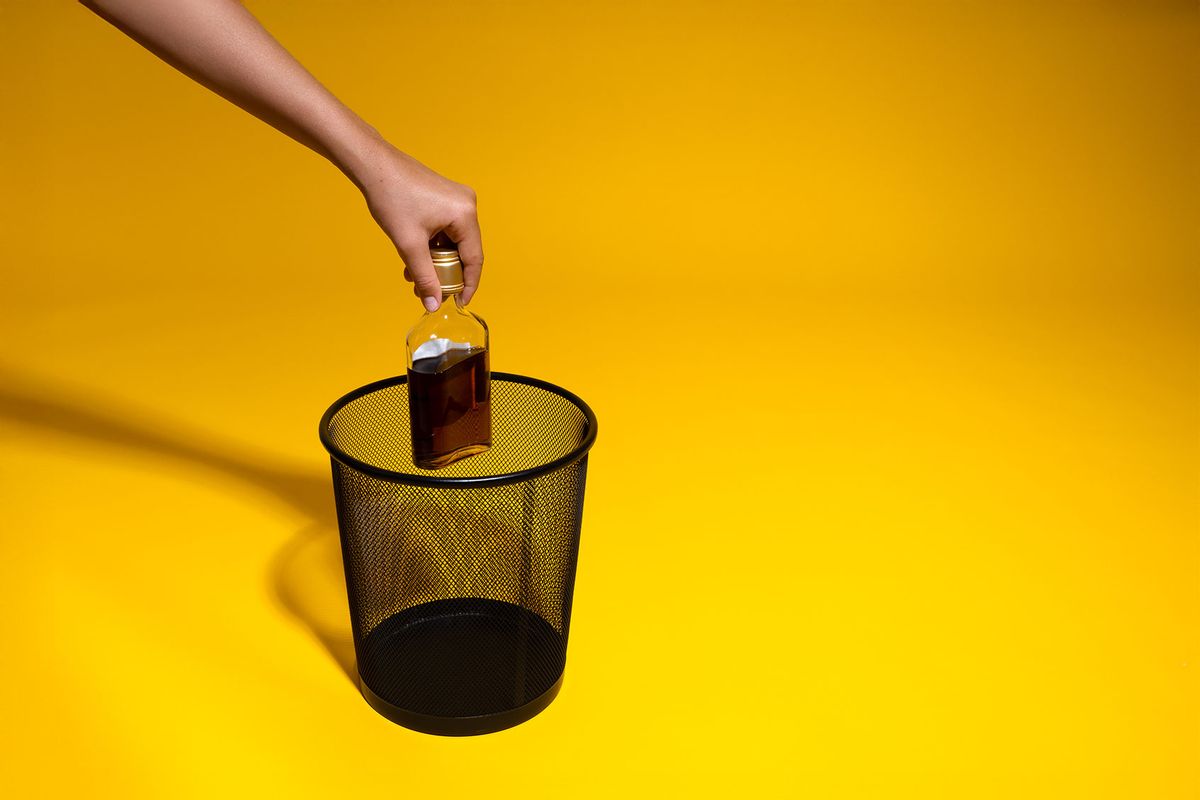Like clockwork, every new year kicks off with Dry January, a campaign introduced by the national charity Alcohol Change UK in which people abstain from alcohol for the entire month of January. Mocktails and non-alcoholic beverages take the place of cocktails as more folks take a vow of sobriety to reset and reassess their relationship with alcohol.
In recent years, the challenge has become a way of life. Abandoning alcohol no longer seems to be a one-month-long endeavor but, rather, a lifestyle that has increasingly been embraced by younger consumers.
A Gallup poll from August 2024 found that 65% of U.S. adults aged 18 to 34 said alcohol consumption negatively affects one’s health. In comparison, 37% of those aged 35 to 54 and 39% of those aged 55 and older expressed similar sentiments. According to data obtained from the July 1-21 Consumption Habits poll, an astounding 45% of Americans say drinking one or two alcoholic beverages per day is bad for one’s health. That statistic is a six-point increase from 2023 and a 17-point increase from 2018.
“Between 2001 and 2018, Americans were much more likely to believe moderate drinking does not affect overall health than to say it has a negative or positive effect,” the poll specified. “Despite a period from the 1990s through the early 2000s when medical research suggested drinking red wine can be beneficial, no more than 25% of U.S. adults have ever seen drinking as good for one’s health.”
In the poll, over 50% of Americans also said the best health advice for those who drink an average amount of alcohol is to reduce their consumption, while 22% said such drinkers should completely cut out alcohol. Only 17% of adults said continuing to drink an average amount is the best advice.
Indeed, fewer people are consuming alcohol and major booze companies have caught on. Major brewers, including Molson Coors and Anheuser-Busch InBev, and spirit companies, like Diageo and Pernod Ricard, have released new non-alcoholic drink options to lure a greater number of consumers who are going sober, CNN’s Jordan Valinsky reported.
“Beer will always be at the heart of what we do, but we know there’s an enormous opportunity with non-alc and that’s why we’ve committed to making it an important part of our business,” Kevin Nitz, vice president of non-alcohol products at Molson Coors Beverage Company said in a 2023 blog post.
The company has since launched zero-sugar energy drinks and non-alcoholic beers like Peroni 0.0. This year, it’s introducing a booze-free Australian canned cocktail alternative called Naked Life to the U.S. The “mocktails” will be available in five different flavors: Mojito, Negroni Spritz, Gin and Tonic, Cosmo and Margarita.
“Consumers want more than just an alternative. They want a sophisticated, great-tasting option that aligns with their lifestyle,” Nitz said in a statement. “Naked Life provides a high-quality non-alc cocktail, delivering an experience of the best alc based versions.”
Anheuser-Busch InBev has also dipped its toes into the non-alcoholic drinks sector with Budweiser Zero, Stella Artois 0.0, O’Doul’s, Corona Cero and Michelob Ultra Zero, which was introduced in September. As for spirits, Diageo purchased Ritual Zero Proof, the world’s top-selling non-alcoholic spirits brand, in September. And Pernod Ricard launched a non-alcoholic version of gin, along with Cinzano Spritz 0% and Ceder’s, a gin-like non-alcoholic beverage with botanical notes of juniper, rooibos and buchu.
We need your help to stay independent
The non-alcoholic beverage market is expected to grow considerably in the near future, per statistics. In 2023, the market size was valued at $1,077.35 billion and is slated to grow from $1,169.57 billion in 2024 to $2,040.83 billion by 2032, SkyQuest Technology, a market research firm, reported.
2025 could possibly be the year that more people abandon alcohol for good, especially after Surgeon General Dr. Vivek Murthy called for a cancer risk warning label on alcoholic beverages on January 3. Key data from the U.S. Department of Health & Human Services has shown that consuming alcohol increases the risk of developing at least seven types of cancer. Alcohol-related cancer risk also differs between men and women. Approximately 22% of women would develop cancer due to consuming two drinks per day. For men, that percentage is 13.1%.
Although there’s a thirst for more non-alcoholic beverages, consumers are craving sophisticated and elevated drinks that push the boundaries of a simple juice-and-soda mixed drink. That’s according to Vanessa Royle and Mariah Hilton Wood, co-founders of Tilden, a social, non-alcoholic beverage company.
Want more great food writing and recipes? Subscribe to Salon Food's newsletter, The Bite.
“I think we're going to see bar and restaurant [non-alcoholic] menus get a lot better,” Royle told Salon. “Last year, it felt like everywhere I went had a non-alc menu. Many of them were still soda water, lemonade and Diet Coke. I feel like we're in the midst of this realization that [non-alc drinks] have to be thoughtful. And actually, if you create something thoughtful and charge more for it, people will pay for it because they want that.”
“We often talk about it in terms of occasion — instead of drinkers and non-drinkers,” Hilton Wood added. “This year, I foresee the share of drinking occasions that include alcohol shrinking and being replaced by non-alcoholic beverages."
“We want to drink. And I think in the past, more of those drinks would have just been alcoholic drinks, because that's what was available,” she added. “And people just didn't think that there was another option. But as we become more aware that non-alcohol options are great, I think a lot of those — like, not-quite-drinking-moments — are going to be filled in with the non-alc options.”



Shares